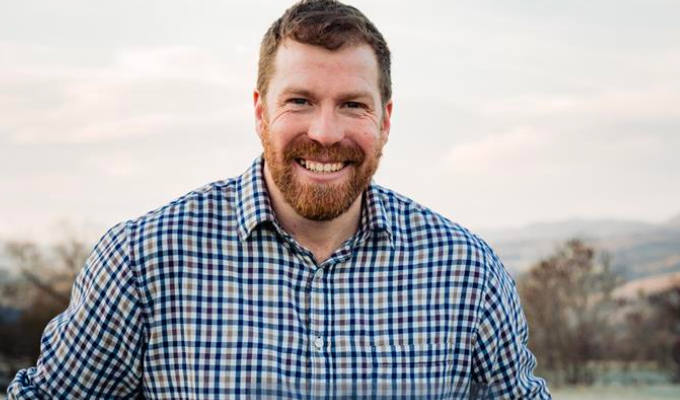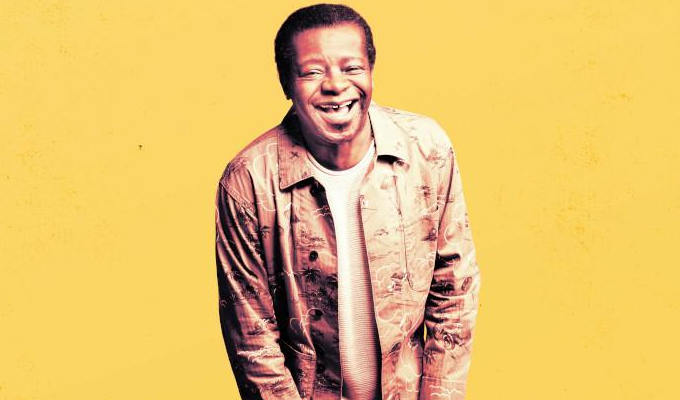Unfortunate Episodes
James Cook is already no fan of Matt LeBlanc's new sitcom
Episodes premiered on BBC Two last night, with a dream-team of acting and writing talent aboard. Maybe my expectations were too high.
Episode one began with Bev (Tamsin Greig) and Sean (Stephen Mangan) rowing in a big house. Bev was upset, packing her case and leaving with Sean following her, pleading and trying to work out why. It turns out that Bev is upset because she caught Sean ‘wanking to’ another woman. But maybe, as this is a comedy, she only THOUGHT she saw that and there’s some kind of innocent explanation...
No, Sean confirms that he did, in fact, do that. Bev drives off on the wrong side of the road, because it turns out they’re in America, and crashes into a car being driven in the opposite direction by Matt LeBlanc.
Then a caption ‘seven weeks earlier’.
So we know that in seven weeks time, Sean is going to have a wank. There’s no ‘what could he have done to make her so angry?’ – because they have already told us. If it turns out that he didn’t, then the writers are not playing fair, and surely the whole point of setting something up as an intriguing end to the series is to raise questions in the viewers minds. Or maybe the writers misunderstood the need for a climax?
Anyway, seven weeks earlier Bev and Sean win Bafta awards. We know this because we hear the audio of the prize-giving and then see Bev and Sean drinking in a bar, and on the table in front of them are two Bafta awards. Then Ben Miller comes in and plays the rival who is secretly jealous and pissed off but is putting a brave face on it and pretending he’s pleased for them. We know this because the following exchange takes place:
BEN MILLER: Honestly, I’m really pleased for you (he leaves)
BEV: He’s so not pleased
SEAN: No, he’s not.
BEV: Well, I’m happy for us
SEAN: I’m just happy (they kiss)
We’ve just witnessed an exchange between the two main characters where they say out loud what they’re thinking TWICE. Seeing as they’ve started it, here’s what I’m thinking...
JAMES: Show. Don’t tell.
The dialogue serves no purpose and teaches us virtually nothing about the characters – other than that they are happy when they win awards, but we should be able to work that out from the fact that they are celebrating, holding awards and acting happy.
Wouldn’t it be more interesting if they had won the awards – but it wasn’t enough for Sean, and although he says he’s happy, really he wants something more and because they’re in a couple, Bev knows that’s what he’s thinking – but it’s all in the subtext and there’s tension and drama. But no.
We do learn that they are a couple, because we see them kiss – but I’m surprised they didn’t include a line which actually points it out. Something like:
SEAN: We are in a couple.
BEV: Yes, let’s kiss.
Then they meet an American TV producer who loves the TV show that they won the Bafta for and wants them to go to the US to produce an American version of the show. He loves the show so much that he wants to have sex with it.
Sean seems keen, Bev doesn’t. We want to find out why Bev is reluctant, but her reasons are practically non-existent (at one point she says it’s because ‘LA is just too LA’) – it’s almost as if Bev’s reluctance only exists to try and force some kind of conflict between the two main characters who otherwise speak with the same voice.
In fact, they don’t really appear to have any characteristics, back-story or inner conflict. All their thoughts are spoken out loud and we know virtually nothing about them. Are we supposed to empathise with them? Why? Because he’s Dirk Gently and she’s Fran off of Black Books?
Anyway, at this point in the plot you should be able to work out what happens next.
He’s a slimy, US TV producer who claims to love the show and doesn’t want to change a thing.
GUESS WHAT?
He DOES want to change things. And he’s never seen the show. Who saw that one coming? We all did – because it is a hoary old cliché.
The rest of the episode then plays out towards the inevitable ending with no surprises, no twists and no drama.
They go to LA, they meet TV people, the TV people lie to them (duplicitous TV people? What original characters!) Their show gets changed, blah-di-blah-di-blah-di-zzzzzz.
Richard Griffiths shows up as the British actor who was the star of the show, and is then made to audition for the US version. You know how that’s going to end. During the audition sequence, an excerpt from the fictional award-winning comedy show is read out. And it’s not funny. Yet the people watching the audition all laugh. And I’m thinking, maybe this is set in an alternative bizarro-universe where things that aren’t funny at all are hilarious…
It’s the Studio 60 versus 30 Rock issue. In Studio 60, a series about a fictional late night US comedy show, the viewer gets to see bits of the fictional show, and it’s painfully mediocre, while all the characters are walking around (it being an Aaron Sorkin production) talking about how good the fictional comedy show is.
Contrast that with 30 Rock, a series about a fictional late night US comedy show, where the viewer very rarely sees the fictional show, but when you do it is intentionally awful, and that becomes a running joke in itself.
My point is that if you’ve spent 20 minutes telling the audience that this TV show is a hit and award-winning and coveted by US TV and then you show us a bit of it and it’s no good, but it’s meant to be good because other characters are laughing – then we, the real life audience, lose all faith in you. Why should we believe anything you tell us from now on?
I know it was the first one and some people think it’s unfair to judge a series on episode one – I don’t, it’s a sixth of the total running time and the one that you’d think the producers would use to try and draw in the viewers.
A friend argued that all first episodes have too much exposition – they don’t (see Fawlty Towers, Father Ted, The Larry Sanders Show and Curb Your Enthusiasm for good examples). Even when there is lots of exposition, there is a way to do it that is entertaining, funny and surprising (for how to, see 30 Rock, The Office and Spaced).
I have no sitcom writing experience. David Crane wrote Friends. If I can see these major flaws in the script, why can’t he?
I won’t be watching next week – but then I don’t have to because at the end of episode one, there was a throw-ahead to week two which practically scene-by-scene and beat-by-beat set out what’s going to happen.
Published: 11 Jan 2011






